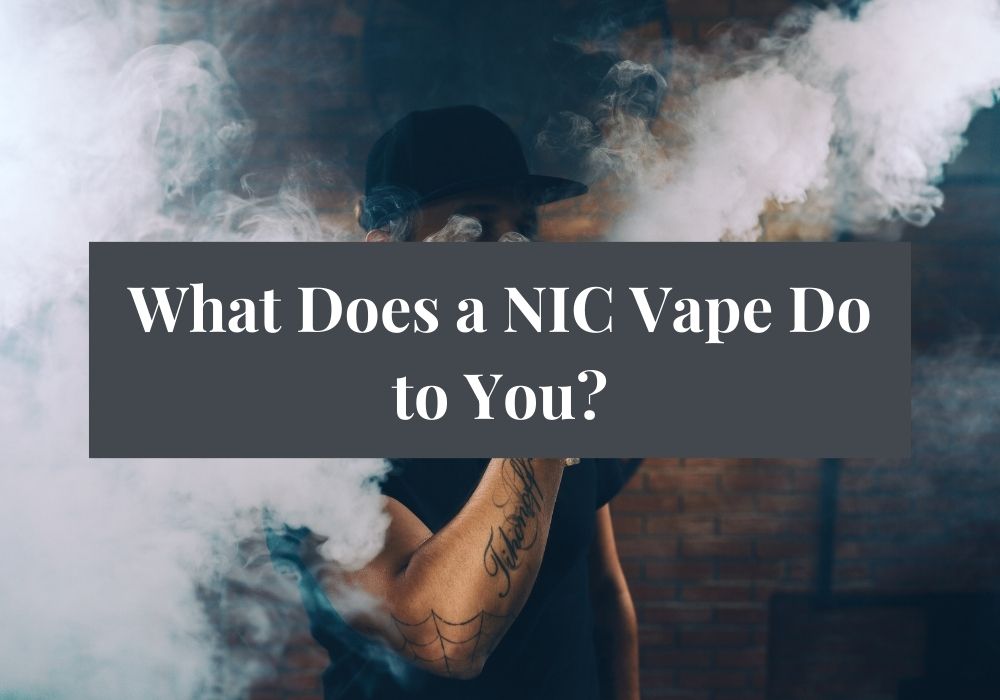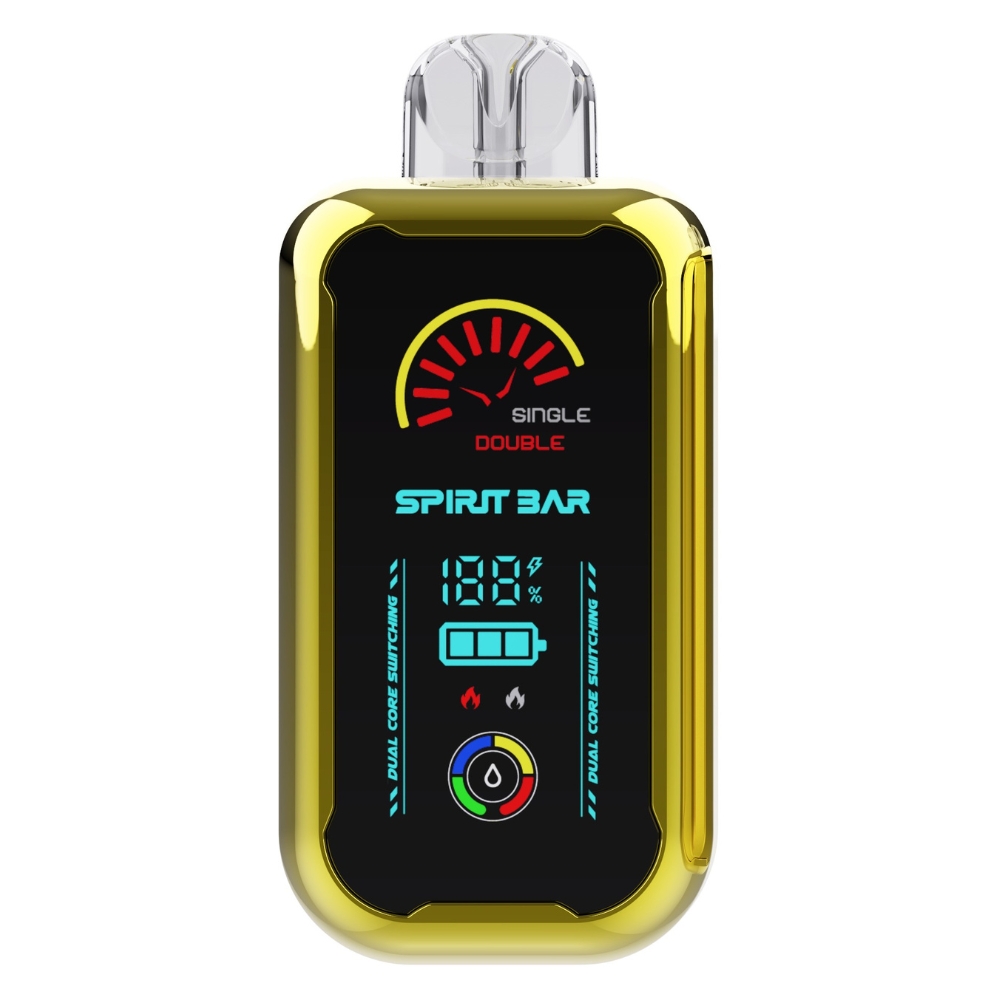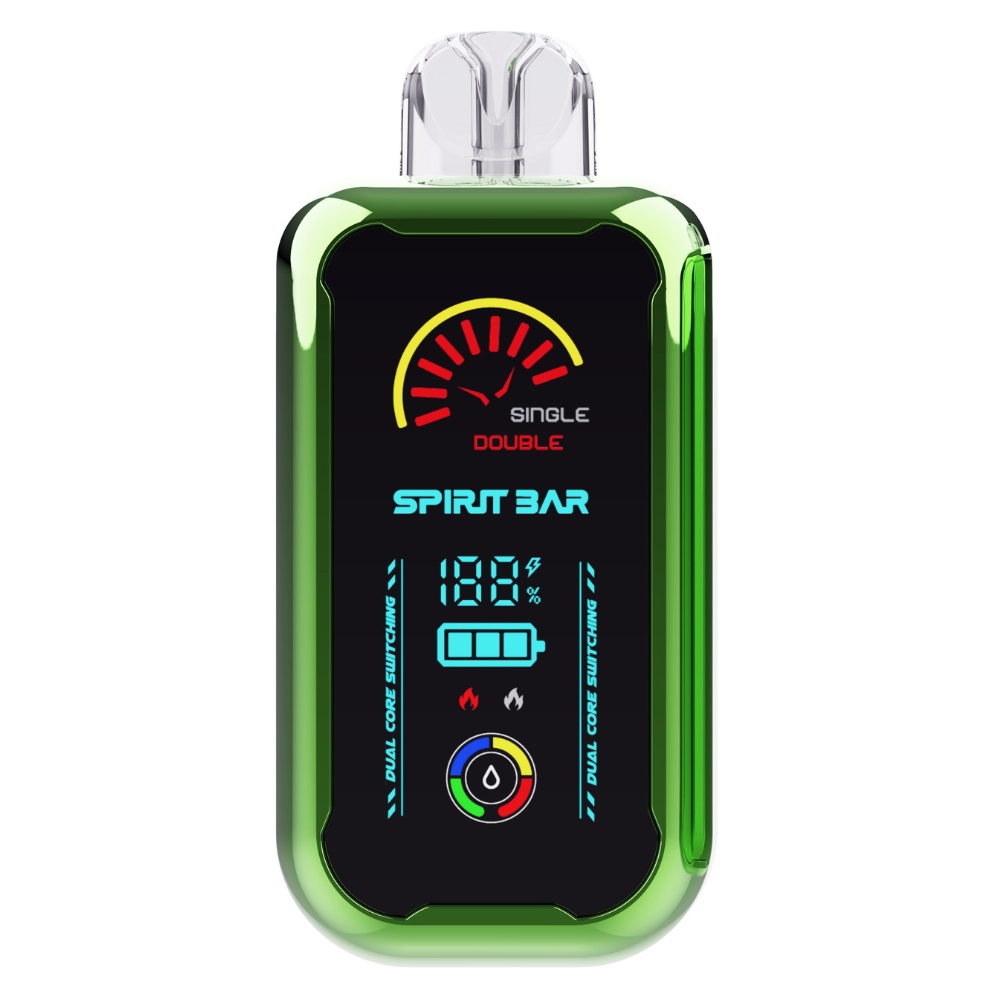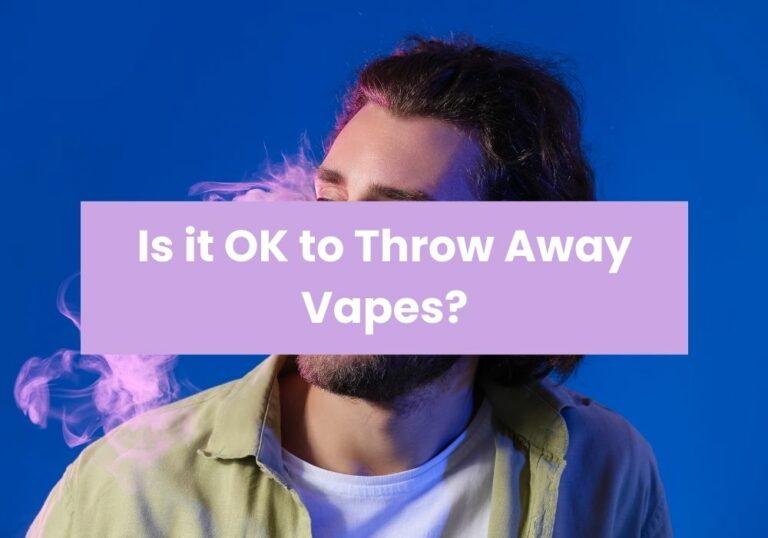What Does a NIC Vape Do to You?

Are you curious about what a NIC vape can do to you? If you are a smoker who is considering switching to vaping, or if you are already using e-cigarettes, it is important to understand the potential effects of nicotine on your body. Nicotine is a highly addictive substance that can have both positive and negative effects on your health.
When you inhale nicotine vapor from a vape pen or e-cigarette, it is absorbed into your bloodstream and rapidly reaches your brain, where it triggers the release of dopamine and other neurotransmitters that create feelings of pleasure and reward. This “nicotine buzz” can be highly addictive and can lead to increased cravings and dependence over time. However, nicotine can also have negative effects on your body, including increased heart rate and blood pressure, reduced appetite, and changes in skin temperature.
It is important to remember that vaping is not a safe alternative to smoking, and the long-term effects of nicotine use are still being studied. If you are considering vaping as a way to quit smoking, it is important to talk to your doctor or a qualified healthcare professional to understand the risks and benefits of this approach.
Understanding Nicotine Vapes
If you’re new to vaping, you may be wondering what nicotine vapes do to you. Nicotine is a stimulant that can have various effects on your body, including increasing your heart rate, blood pressure, and adrenaline levels. When you inhale nicotine through a vape, it is absorbed into your bloodstream through your lungs, providing a quick and intense rush of nicotine.
Nicotine vapes come in different strengths, usually measured in milligrams per milliliter (mg/mL) or as a percentage (%). The appropriate nicotine strength depends on individual smoking or vaping habits, such as the frequency and intensity of use. It is important to choose the right nicotine strength to avoid overexposure to nicotine, which can result in adverse effects such as nausea, dizziness, and headaches.
One of the benefits of vaping nicotine is that it can help satisfy nicotine cravings without the harmful effects of smoking tobacco. Vaping is a safer and healthier alternative to tobacco smoking, as it does not produce tar or carbon monoxide, which are harmful chemicals found in tobacco smoke.
Nicotine vapes also come in different forms, including refillable tanks, disposable vapes, and pod systems. Refillable tanks allow you to customize your vaping experience by choosing your own e-liquid flavors and nicotine strengths. Disposable vapes are pre-filled with e-liquid and are easy to use, making them a popular choice for beginners. Pod systems are similar to disposable vapes but offer more customization options.
In conclusion, understanding nicotine vapes is important if you want to make the most of your vaping experience. Choosing the right nicotine strength and vape type can help you satisfy your nicotine cravings safely and effectively. Remember to always use vaping products responsibly and consult with a healthcare professional if you have any concerns about nicotine use.
Health Effects of Nicotine Vapes
Using nicotine vapes, also known as e-cigarettes, can have various health effects on your body. Here are some of the most common effects:
- Addiction: Nicotine is highly addictive, and using nicotine vapes can lead to addiction. This means that you may feel like you need to use the device regularly to satisfy your cravings for nicotine.
- Respiratory problems: Vaping can cause respiratory problems, such as coughing, wheezing, and shortness of breath. This is because the aerosol produced by the device can irritate your lungs and airways.
- Increased heart rate and blood pressure: Nicotine vapes can increase your heart rate and blood pressure, which can put extra strain on your cardiovascular system.
- Nicotine poisoning: If you use too much nicotine, you can experience symptoms of nicotine poisoning, such as nausea, vomiting, stomachache, and headache. In severe cases, nicotine poisoning can be life-threatening.
- Increased risk of addiction to other substances: There is evidence to suggest that using nicotine vapes can increase your risk of addiction to other substances, such as alcohol and drugs.
It’s important to note that the long-term health effects of using nicotine vapes are still not fully understood. However, early evidence suggests that vaping can have negative effects on your health, and it’s best to avoid using these devices if possible. If you are already using nicotine vapes, consider talking to a healthcare professional about ways to quit.
Short-Term Effects of Vaping
When you vape, the nicotine in the e-liquid is quickly absorbed into your bloodstream, causing a rush of adrenaline. This can lead to a temporary increase in heart rate and blood pressure, which can make you feel lightheaded or dizzy. Some people also experience headaches, nausea, or stomach upset.
In addition to nicotine, e-liquids often contain other chemicals, such as propylene glycol and flavorings. When these chemicals are heated and inhaled, they can irritate your throat and lungs, causing coughing, sore throat, or shortness of breath. This is sometimes referred to as “vaper’s cough.”
One of the most common short-term effects of vaping is the dry mouth or “cottonmouth” sensation. This occurs because vaping can reduce saliva production, which can make your mouth feel dry and sticky. Drinking plenty of water can help alleviate this symptom.
It’s important to note that the short-term effects of vaping can vary from person to person, and may depend on factors such as the amount of nicotine in the e-liquid, the frequency of use, and the individual’s overall health. If you experience any unusual symptoms after vaping, it’s best to stop immediately and seek medical attention if necessary.
Long-Term Effects of Vaping
While vaping is often marketed as a safer alternative to smoking, there are still potential long-term effects that you should be aware of. Here are some of the possible consequences of vaping over an extended period:
- Increased risk of cardiovascular disease: Vaping can cause damage to your blood vessels, which can lead to an increased risk of heart disease and stroke. Nicotine, which is present in most vape liquids, can also raise your blood pressure and heart rate, further increasing your risk.
- Lung damage and disease: Vaping can cause inflammation and damage to your lungs, which can lead to chronic obstructive pulmonary disease (COPD) and other respiratory problems. In some cases, vaping has also been linked to the development of lung cancer.
- Seizures: While rare, there have been reports of seizures in people who vape. This is thought to be related to the high levels of nicotine in some vape liquids.
- Nicotine addiction and poisoning: Nicotine is highly addictive, and vaping can make it easy to consume large amounts of the substance. This can lead to addiction, which can be difficult to overcome. In addition, consuming too much nicotine can cause poisoning, which can be life-threatening.
It’s important to note that the long-term effects of vaping are still being studied, and more research is needed to fully understand the risks. However, it’s clear that vaping is not without potential consequences, and you should be aware of these risks before you start vaping. If you’re already a vaper, it’s never too late to quit and reduce your risk of these long-term effects.
Vaping and Addiction
Vaping is often marketed as a safer alternative to smoking, but it still poses risks to your health. One of the biggest risks associated with vaping is addiction to nicotine. Most vapes contain nicotine, which is highly addictive and can lead to dependence.
When you vape, the nicotine is absorbed into your bloodstream through your lungs. It then travels to your brain, where it triggers the release of dopamine, a neurotransmitter that makes you feel good. Over time, your brain and body get used to having nicotine, which means you may have nicotine withdrawal symptoms when you quit vaping.
Nicotine addiction is a serious problem that can have long-term health consequences. It can increase your risk of heart disease, stroke, and lung cancer. It can also affect your mental health, leading to anxiety and depression.
If you’re worried about your nicotine addiction, there are steps you can take to quit vaping. First, talk to your doctor or a healthcare professional about your options. They can help you develop a plan to quit that works for you.
You may also want to consider using nicotine replacement therapy (NRT) to help manage your withdrawal symptoms. NRT products, such as nicotine gum or patches, can help reduce your cravings for nicotine and make it easier to quit vaping.
Remember, quitting vaping is not easy, but it’s worth it for your health. With the right support and resources, you can overcome your addiction and live a healthier, happier life.
Vaping and Mental Health
When it comes to vaping, there is growing concern about the potential impact on mental health. While nicotine has not been found to directly cause mental health conditions, studies suggest that vaping may be linked to worsening symptoms of depression and anxiety, as well as higher odds of having a depression diagnosis.
Nicotine is known to interrupt the cerebral dopamine pathway, leading to an increase in depressive symptoms. It also increases sensitivity to stress and alters the coping mechanism in the brain. These changes can lead to an increased dose-response relationship, meaning an increase in symptoms with increased exposure to nicotine.
In addition to nicotine, some e-cigarette liquids contain other chemicals that can have negative effects on mental health. For example, some flavorings have been linked to increased inflammation in the body, which has been associated with depression and other mental health conditions.
It’s important to note that the mental health implications of vaping are still largely unknown, and more research is needed to fully understand the potential risks. However, if you are experiencing symptoms of depression or anxiety, it’s worth considering whether vaping could be contributing to these issues.
If you are struggling with mental health concerns, it’s important to seek support from a qualified healthcare provider. They can help you develop a treatment plan that addresses your specific needs and can provide you with the resources and support you need to manage your symptoms effectively.
Vaping and Physical Appearance
When it comes to physical appearance, vaping can have both positive and negative effects. Here are some things to keep in mind:
- Teeth and Gums: Unlike smoking cigarettes, vaping does not leave behind tar that can stain your teeth. However, vaping can still cause gum irritation and inflammation, which can lead to gum disease over time.
- Skin: Vaping can cause dehydration, which can make your skin look dry and dull. Additionally, some studies have suggested that vaping can increase your risk of acne.
- Breath: Vaping can leave behind an unpleasant odor in your mouth and on your clothes. This is because the aerosol produced by vaping can contain chemicals and flavorings that stick to surfaces.
- Lungs: The long-term effects of vaping on lung health are still being studied. However, it is known that vaping can cause shortness of breath, coughing, and wheezing in the short term.
Overall, while vaping may not have the same negative effects on physical appearance as smoking cigarettes, it is still important to be aware of the potential risks. Remember to stay hydrated and practice good oral hygiene to minimize any negative effects on your teeth, gums, and skin.
Vaping and Lung Health
If you’re wondering what a NIC vape does to you, it’s important to consider its impact on your lung health. Research suggests that vaping can have negative effects on your respiratory system.
According to a Johns Hopkins Medicine article, using e-cigarettes can be harmful to your lungs. While more research is needed to fully understand the effects of vaping on lung health, it’s clear that the chemicals in e-cigarettes can cause damage to your respiratory system.
Vaping can expose your lungs to harmful chemicals, such as volatile organic compounds, cancer-causing chemicals, and heavy metals like nickel, tin, and lead. In some cases, vaping has even been linked to sudden and severe lung problems, including deaths. This condition is known as e-cigarette, or vaping, product use-associated lung injury (EVALI).
Moreover, according to the American Lung Association, e-cigarettes can cause lung irritation, coughing, and breathing difficulties. The long-term effects of vaping on lung health are still unknown, but it’s clear that e-cigarettes are not a safe alternative to smoking.
If you’re considering vaping as a way to quit smoking, it’s important to talk to your healthcare provider about safe and effective smoking cessation methods. Remember, quitting smoking is the best thing you can do for your lung health.
Vaping and Heart Health
If you are a vaper, you may be wondering about the effects of vaping on your heart health. According to Everyday Health, vaping can cause a bump in heart rate and blood pressure. The nicotine in e-cigarettes increases adrenaline levels, which makes your heart beat faster and boosts your blood pressure, leading to an increased risk of heart attack.
A study published in Medical News Today found that vapers had a higher risk of atrial fibrillation and heart attack. The study also showed that vaping could cause a higher heart rate, stiffer arteries, and higher blood pressure. Although vaping is still considered preferable to smoking tobacco, the long-term effects of e-cigarettes on heart health are still unknown.
According to Johns Hopkins Medicine, vaping raises your blood pressure and spikes your adrenaline, which increases your heart rate and the likelihood of having a heart attack. Additionally, the chemicals that make up the vapor are still unknown, and their long-term effects on physical health are still being studied.
Vaping can also cause breathing problems, organ damage, addiction, and other conditions, according to Cleveland Clinic. Cardiologists have also warned that vaping can put stress on the heart, impair blood vessels, and affect the heart’s ability to maintain blood pressure, according to Insider.
In conclusion, vaping can have negative effects on heart health due to the nicotine in e-cigarettes, which increases adrenaline levels, leading to an increased risk of heart attack, higher heart rate, stiffer arteries, and higher blood pressure. The long-term effects of vaping on heart health are still unknown, and the chemicals that make up the vapor are still being studied.
Vaping Among Teens
Vaping has become increasingly popular among teenagers in recent years. According to the CDC, the use of e-cigarettes is unsafe for kids, teens, and young adults. Most e-cigarettes contain nicotine, which is highly addictive and can harm adolescent brain development, which continues into the early to mid-20s.
Parents should be concerned about their children vaping because it increases the risk of teens developing an addiction to nicotine. Vaping exposes children and teens to harmful metals and toxic chemicals found in e-cigarettes. A mysterious, vaping-related illness called e-cigarette or vaping product use-associated lung injury (EVALI) is also on the rise, according to CHOP.
It’s important for parents to educate their children about the risks of vaping. They should also be aware of the signs of nicotine addiction, such as irritability, anxiety, and difficulty concentrating. If parents suspect their child is addicted to nicotine, they should seek professional help.
Teens should also be aware of the risks associated with vaping. They should understand that e-cigarettes are not a safe alternative to smoking. E-cigarettes can also lead to other risky behaviors, such as experimenting with other drugs. It’s important for teens to make informed decisions about their health and well-being.
In conclusion, vaping among teens is a growing concern. Parents and teens should be aware of the risks associated with e-cigarettes and take steps to protect their health.
Vaping and Secondhand Exposure
If you’re a vaper, you may be wondering about the effects of secondhand vape exposure on those around you. Secondhand exposure to vape aerosol can have negative health effects, just like secondhand smoke from cigarettes.
Studies have shown that secondhand vape exposure can increase the risk of shortness of breath and bronchitic symptoms in young adults. Ultrafine particles in vape aerosol can also increase the risk of cardiovascular disease.
Nonsmokers exposed to secondhand vape aerosol can absorb similar levels of nicotine as those exposed to secondhand cigarette smoke. This means that even if you’re not a vaper, you may still be at risk of nicotine addiction and other negative health effects from exposure to secondhand vape aerosol.
To minimize the risk of secondhand exposure, it’s important to vape in designated areas away from nonsmokers and to avoid vaping in enclosed spaces like cars or small rooms. If you’re a nonsmoker, it’s important to avoid exposure to secondhand vape aerosol whenever possible.
Overall, it’s important to be mindful of the potential health risks associated with secondhand vape exposure and to take steps to minimize the risk to yourself and those around you.
Alternatives to Vaping
If you’re looking to quit smoking or vaping, there are several alternatives to consider. Here are a few options:
Nicotine Replacement Therapy (NRT)
Nicotine Replacement Therapy (NRT) products deliver nicotine to the body in a controlled way. This consistent dose can help ease nicotine withdrawal symptoms associated with quitting smoking or vaping. NRT comes in several forms, including patches, gum, lozenges, inhalers, and nasal sprays. These products are available over-the-counter and by prescription.
Herbal Cigarettes
Herbal cigarettes contain a blend of herbs and spices, such as mint, cinnamon, and clove. These cigarettes are nicotine-free and can be a good option for those who want to quit smoking or vaping but still enjoy the sensation of smoking.
Nicotine-Free Vaping
Nicotine-free vaping is another alternative to consider. Vaping without nicotine prevents nicotine dependence and other side effects that have an association with nicotine. However, vaping without nicotine can also cause side effects, such as dry mouth, sore throat, and coughing. If you decide to try nicotine-free vaping, make sure you choose a reputable brand and use it responsibly.
Therapy and Support Groups
Therapy and support groups can also help you quit smoking or vaping. A therapist can help you address any underlying emotional or mental health issues that may be contributing to your addiction. Support groups can provide a sense of community and accountability as you work to quit smoking or vaping.
Remember, quitting smoking or vaping is a process that takes time and effort. Don’t be afraid to try different alternatives and seek help when you need it.
Getting Help for Vaping Addiction
If you are struggling with vaping addiction and want to quit, there are many resources available to help you. Here are some steps you can take to get started:
- Talk to your doctor or a healthcare professional. They can provide you with information on quitting vaping and suggest treatment options that may be right for you.
- Join a support group. Talking to others who are going through the same struggles can be incredibly helpful. There are many online and in-person support groups available.
- Consider nicotine replacement therapy (NRT). NRT can help reduce cravings and withdrawal symptoms. Options include nicotine gum, patches, lozenges, and inhalers.
- Try behavioral therapy. Behavioral therapy can help you identify triggers and develop coping strategies to resist the urge to vape.
- Use smartphone apps. There are many apps available that can help you track your progress, provide motivation, and connect you with support groups.
Remember, quitting vaping is not easy, but it is possible. With the right support and resources, you can overcome addiction and improve your health and well-being.








